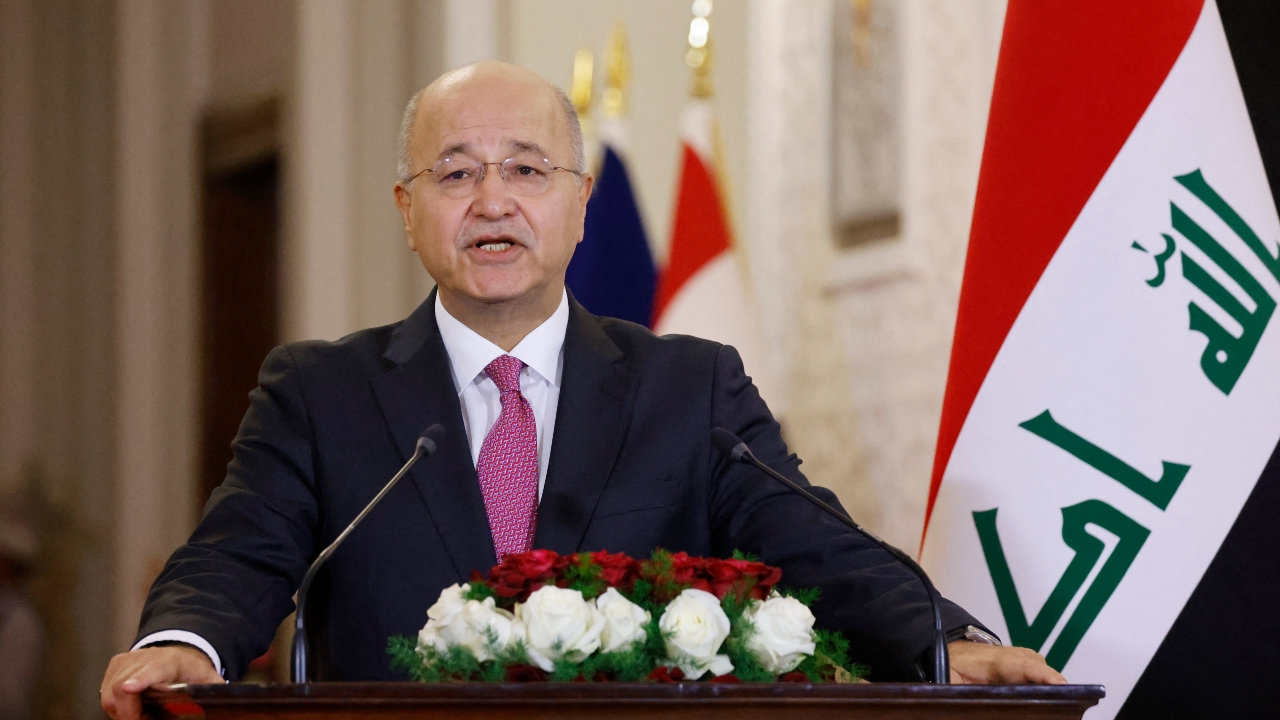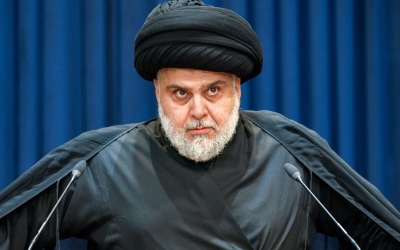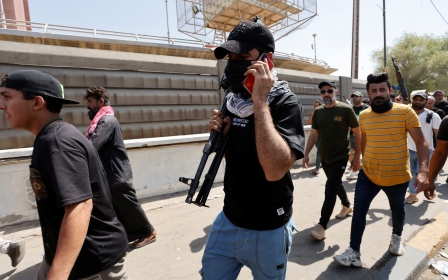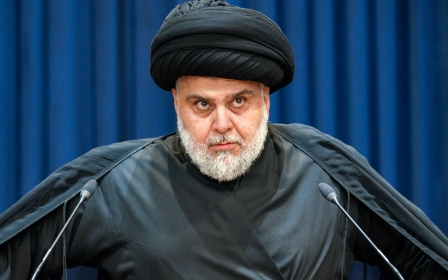Iraq's president calls for early elections to end political crisis

Iraqi President Barham Salih on Tuesday encouraged early legislative elections to settle a political crisis that escalated into deadly clashes this week, leaving dozens dead and hundreds more wounded.
Early elections, less than a year after the last polls, have been a key demand of the influential Shia cleric Muqtada al-Sadr, whose supporters battled state security forces during violence that started on Monday.
"Holding new, early elections in accordance with a national consensus represents an exit from the stifling crisis," Salih said in a speech.
"It guarantees political and social stability, and responds to the aspirations of the Iraqi people."
Iraq Prime Minister Mustafa al-Kadhimi said on Tuesday that he would "vacate his post" if the fraught political situation in the country continues.
On Monday, the prime minister suspended cabinet sessions until further notice after protesters broke into the government headquarters.
Absolute majority
Salih spoke just hours after supporters of Sadr withdrew from Baghdad's Green Zone following nearly 24 hours of clashes that pitted them against the army and Shia militias backed by neighbouring Iran.
At least 28 Sadr supporters were killed and around 750 injured after fighting that began on Monday when Sadr's loyalists stormed the government palace following their leader's announcement that he was quitting politics.
Sadr and his supporters have spearheaded calls for the dissolution of parliament and new legislative elections following months of political paralysis.
Under the constitution, parliament can only be dissolved by an absolute majority vote in the house, following a request by one-third of deputies or by the prime minister with the approval of the president.
Sadr's bloc emerged from last October's election as the biggest in the legislature, with 73 seats, but far short of a majority.
Since then the country has been mired in political deadlock due to disagreement between Shia factions over forming a coalition.
In June, his lawmakers quit in a bid to break the logjam.
Sadr's supporters had for weeks been staging a sit-in outside Iraq's parliament, after storming the legislature's interior on 30 July.
Middle East Eye propose une couverture et une analyse indépendantes et incomparables du Moyen-Orient, de l’Afrique du Nord et d’autres régions du monde. Pour en savoir plus sur la reprise de ce contenu et les frais qui s’appliquent, veuillez remplir ce formulaire [en anglais]. Pour en savoir plus sur MEE, cliquez ici [en anglais].





